Creativity - Collaboration - Sharing / Thoughts - Ideas - News
Don't wanna be here? Send us removal request.
Photo

The End !
Post reflection: We hope you’ve enjoyed this journey through ethics, observing, linking and analysing it to different examples and contrasting situations. Although ethics is an endlessly deep topic that will be constantly debated and clarified for centuries to come, we have learned so much and strived to address every obstacle encountered in our research and reflection process. Even if we cannot define ethics for every possible situation, we hope that we were able to teach you how to avoid being unethical in some scenarios! Each section represented a different point of view and focused on a narrow field, altogether creating a holistic perspective on the importance that ethics hold in our every day lives, whoever we are and wherever we stand!
This key take away can be linked to a quote from Albert Camus: you cannot be guided through life without integrity and ethics that define your actions and decisions.
We have been delighted to present you our blog. Thank you for this unique and creative experience - Annabel, Léa, Praneetha & Charles
#goodbye#the end#ethics#blog#experience#reflection#future#improvement#group work#connection#inspiration#final quote
0 notes
Text
Artificial intelligence ethics
AI ethics can be divided into a concern with the moral behavior of humans as they design, construct, use and treat artificially intelligent beings, and machine ethics, which is concerned with the moral behavior of artificial moral agents.
Artifical intelligrnce represents a set of ethical challenges for policy makers. In his book “AI Ethics”, Mark Coeckelbergh analyzes a range of policy proposals and discusses challenges for policymakersargues for ethical practices that embed values in design, translate democratic values into practices and include a vision of the good life and the good society.
Considering the ethical challenges of AI technology, we believe it is crucial for organisations to bring forward concrete standards that will actively govern the research and product development they carry, and will respect ethics within business decisions.

Google’s AI project have set clear principles forward to its customers, the long term objectives of its applications. Beyond their products, they are using AI to help people tackle urgent problems. A pair of high school students are building AI-powered sensors to predict the risk of wildfires. Farmers are using it to monitor the health of their herds. Doctors are starting to use AI to help diagnose cancer and prevent blindness.
Google has implemented "top compliance officers” to make sure that in addition to the above objectives, they will not design or deploy AI in the following application areas:
Technologies that gather or use information for surveillance violating internationally accepted norms.Technologies whose purpose contravenes widely accepted principles of international law and human rights.
We believe tech companies should put forward a set of guidelines similar to Google and follow its example. As the complexity of technology faces increasing consumer questions, we think it is important to set prior clear information and agree terms to avoid any breach of data protection or privacy ethics.
Reference: Press, T. M. (2020). AI Ethics | The MIT Press. Retrieved May 24, 2020, from https://mitpress.mit.edu/books/ai-ethics
Sundar Pichai. (2018, June 7). AI at Google: our principles. Retrieved May 24, 2020, from https://www.blog.google/technology/ai/ai-principles/
#artifical intelligence#ethical dimension#google#example#technology#solvingproblems#modern world#beyond the scope
0 notes
Text
Our opinion on humane technology
Automated decision-making models are moving from research environments to real-world environments, creating new sets of social challenges. Despite how intelligent and mathematically accurate autonomous systems may be, they run into some problems when interfaced with a world populated with unpredictable human beings. Is the solution for technology companies to hire a Chief ethics officer? And how is an official ethical system in place, without it seeming like you’re telling everyone how to behave? It is important, as referred to earlier, not to abuse of power and control when deciding ethical rules associated with humane technology. The Center for Humane Technology is a nonprofit organization focused on the ethics of consumer technology. It advocates for regulators and technology companies to avoid social media features and profit incentives that it sees as contributing to internet addiction, political extremism, and misinformation
We strongly support this framework we have found (Ashok,2018), which breaks down humane technology into six considerations: it acknowledge human concerns with corresponding principles to build ethically aligned technology. The framework was arrived at by overlaying the psychological goals that create meaningful digital experiences with known concerns of emerging technology (Stahl et al.,2016).
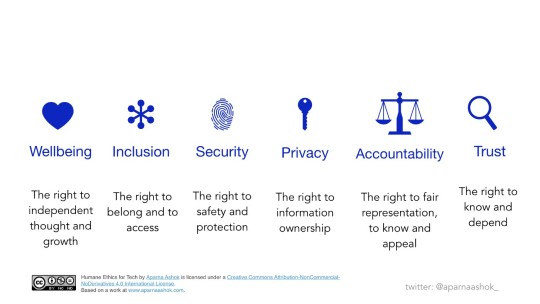
Wellbeing is about aligning system goals in the best interest of humanity. It can be enhanced if The business model is built to support the human outcomes of the solution.
Inclusion is about adapting to the user, embracing diversity and creating a sense of belonging. This value is enhanced if extra attention is paid to addressing inequalities when incorporating vulnerable communities into a database or service.
Security is about protecting the user’s psychological, emotional, intellectual, digital and physical safety, and Privacy about honouring the user’s ownership of their information in the way it is collected, analysed, processed, interpreted and shared. Both values can be enhanced by implementing measures and procedures to alert users to help with contingencies in the event of a data breach or hack.
Accountability lies in creating transparency in how decisions are made, addressing biases and creating pathways for the user to challenge such a decision.
Finally, all values reflect trust, which is achieved when product or service is trustworthy in the eyes of the user, and can be enhanced by the company’s stance or principles being fully accessible to the public. We believe such a framework is crucial to understanding our human rights in the digital age. The technological phenomena that threaten these rights and principles to build technology should be
to create a beneficial future for humanity.
Reference: Ashok, A. (2019, March 4). Ethical Principles for Humane Technology. Retrieved May 17, 2020, from https://blog.prototypr.io/ethical-principles-for-humane-technology-19f4fb3b0ba2
Center for Humane Technology: Realigning Technology with Humanity. (2019). Retrieved May 22, 2020 from https://humanetech.com/
Swisher, K. (2018, October 21). Opinion | Who Will Teach Silicon Valley to Be Ethical? The New York Times. Retrieved May 23, 2020 from https://www.nytimes.com/2018/10/21/opinion/who-will-teach-silicon-valley-to-be-ethical.html
#ethics#humane technology#framework#rights#digitalage#humanity#values#system#goals#alignment#beyond the scope
0 notes
Photo

Actually our journey should finish now... However, we’re not ready to leave you! Therefore, we have decided to add an extra section: it holds a focused perspective on the ethical challenges of technology, a topic that further triggered our interest. We really hope you’ll like it!
0 notes
Text
An Ethical Dilemma in the COVID-19 Crisis
Economy vs human health when reopening: Flam, F. (2020) stated an ethical dilemma in a Bloomberg article, namely the economy vs health of people in times of reopening the economy during the Covid-19 crisis.
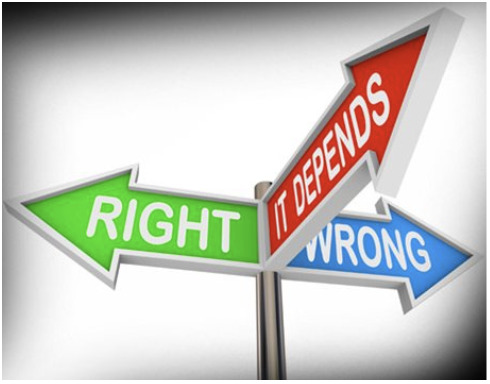
Our opinion:
This is a pure example of a dilemma created/formed by society. Society is built in the way that everyone is super dependent on the economy; everything costs money. Hence, as a consequence, individuals are more concerned about their financial status than their overall health. And thus, they are protesting and complaining about the quarantine restrictions opposed by the defining governments.
Important to mention here, is that this notion is not shared by everyone in society. The upper-class, who are taking this social-distancing as a way to explore new hobbies, often forget that this is not the case for everyone, specifically the majority of the world’s population. These upper-class regards these opposers as weird and question their morality, since from their perspective these social distancing opposers are bringing everyone else in danger. The latter is scientifically proven, social distancing is a vital part of saving as many individuals as possible.
However, there is a big but. The perspective of the people, who lost their jobs, income, etc. question the morality of the governments, since they feel backstabbed; how can they take care of their families, or go on holidays again while suffering huge financially from this crisis?
Hence we clearly found ourselves in an ethical dilemma here, and hence the reopening of the economy post-virus is more about ethics than about science.
Reference: Flam, F. (2020, April 15). Post-Virus Reopening Is More About Ethics than Science. Retrieved May 24, 2020 from https://www.bloomberg.com/opinion/articles/2020-04-14/reopening-the-economy-post-coronavirus-is-about-ethics
1 note
·
View note
Text
Different Ethics in Different Cultures: Hofstede
It is fair to say ethics are dependent on the culture of where it’s happening. According to the Hofstede cultural measures, when you compare The Netherlands to Saudi Arabia, it is clear that the Netherlands is less masculine in comparison with Saudi Arabia, i.e. Saudi Arabia scores 60 percent and the Netherlands 14 percent (Hofstede, Country Comparison, 2019). Moreover, it would be difficult for a Dutch woman to work in Saudi Arabia due to masculinity, this would cause a culture shock because in the Netherlands it is all about balance and consensus on the work floor whereas in Saudi Arabia it is all about competitiveness (French, 2015). Another factor of cultural heritage on the work floor is gender inequality. This goes slightly hand in hand with power distance, in Saudi Arabia there is clear gender inequality, women are not allowed to vote, they have to be guarded by a man, they are not allowed to drive a car… this will also cause a culture shock for a woman in Saudi Arabia when she would come to live in the Netherlands, she is used to her culture and will have to adapt to a new culture where she will now have the chance to become independent and get equal rights (Sullivan, 2013). Furthermore, it is unusual for a woman to work in a corporation in Saudi Arabia, therefore, when a Dutch woman will work in Saudi Arabia, she will have to get used to the fact she will need to obey man on the work floor and she has limited growth prospects (TheWeek, 2016).
Our opinion:
We believe that in today’s world, it is unfair that women have limited growth prospects when they get a job in a country like Saudi Arabia. Moreover, we completely understand that every culture is different and that in some countries the way of work is different. However, we do believe that nowadays women should have the same rights as men concerning growth prospects. Next to this, I would encourage companies to offer trainings to employees from other cultures, to get to know the way of work to soften the culture shock in order to offer employees an ethical switch.
References: Hofstede, G. (2019). Country Comparison. Retrieved May 23, 2020, from https://www.geert-hofstede.com/netherlands.html
Theweek. (2016, September 27). Seven things women in Saudi Arabia cannot do. Retrieved March 23, 2020, http://www.theweek.co.uk/60339/nine-things-women- cant-do-in-saudi-arabia
French, R. (2015). Cross-cultural management in work organisations (3rd ed.). London: Chartered Institute of Personnel and Development.
0 notes
Text
Google in China
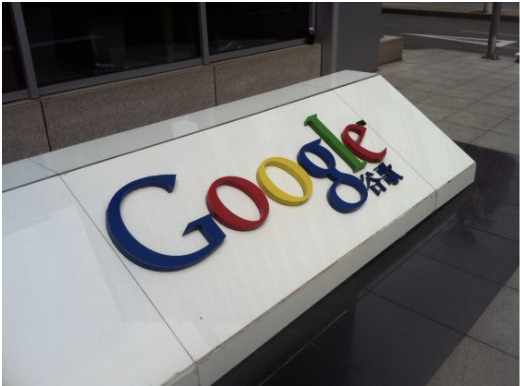
As we discussed in the tutorial, Google’s expansion into China has been known to be fairly controversial. Google has been repeatedly blocked in China over the past couple of decades for upsetting the government. In this post, we will discuss the specific ethical issues with Google’s censorship.
The Great Firewall of China is the largest-scale internet censorship operation in the world. China says that they have the firewall in place to promote societal harmony within a rapidly increasing population of billions of people. China seems to consider its internet as a part of its sovereign territory.
A recently terminated Google project named ‘Dragonfly,’ encompassed a highly censored version of Google’s search services run in partnership with a local company in China. “Censorship in China includes returning no results for searches that depict Chinese police or military brutality (such as the Tiananmen Square massacre), pro-democracy sites, sites linked with the Dalai Lama, and anything related to Taiwanese or Tibetan independence” (Flick, 2018). Google’s plans to move back into China brought up several ethical dilemmas since it seemed as if the tech giant was assisting China in restricting its citizens’ human rights through the new limited technology. “Is Google being hypocritical by making money on the freedom of information available in most societies but then selling it out when they go into China?” (Flick, 2018).
Our opinion:
Clearly there was a huge ethical issue with this project, since it was terminated very soon after being announced. Since over time, ethical companies have been more profitable through the attainment of employee retention and customer respect & loyalty, Google wouldn’t have prospered in China for very long anyway. By respecting China’s cultural values, it is going against basic human rights and the concept of democracy. Google should look towards a more open service if it plans to try and expand into China again in order to satisfy all of its customers abroad AND back at home.
Reference: Flick, C. (2018, August 8). Why Google's censored search engine for China is such an ethical minefield. Retrieved May 24, 2020, from https://www.independent.co.uk/life-style/gadgets-and-tech/features/china-great-firewall-google-online-internet-censorship-project-dragonfly-a8480016.html
0 notes
Text
Fashion Nova: A Case of Unethical Supply Chain

Fashion Nova is using American influencers to help spread the illusion of organic ethics. They let their customers believe that if our own homegrown darlings, ones who also aren’t born into luxury, are proudly wearing and marketing these clothes, how bad can they be? “If they’re made in the USA, then what’s the harm?” (Meagher, S. 2020.).
Turns out, there’s a lot of harm. According to Meagher, S. (2020) Fashion Nova produces their clothes in sweatshops, not in the ones we think of like in China or India, but sweatshops in Los Angeles. The department of Labor investigated these sweatshops in LA and found out that almost all of the employees were undocumented and did not receive enough money for their work. This is a clear example that shows that if clothes are produced in their country, in this case, the USA, it might still be in horrific conditions.
Our opinion:
So it turned out Fashion Nova uses the famous sweatshops for the production of their fashion clothing. However do the customers care?
Up to this day, Fashion Nova has even gotten more popular with net sales in 2019 reaching up to 554.8 m ("fashionnova.com revenue | ecommerceDB.com", 2020). So the question from us to you is; does the consumer really care?
We mentioned in one of our earlier blog posts that 94% of Gen-Z now think companies should address pressing social and environmental issues, and 55% are willing to pay extra for products and services that contribute to these mentioned issues (Murray, J. 2020). However the Fashion Nova example sounds rather contradictory. It seems like for clothes so cheap, sweatshops are kinda expected.
“It’s not in China, but in America that workers put in grueling 12 hour days, making garments that will be sold for anywhere from $5 to $75 for around three cents apiece paid out.” (Meagher, 2020).
So is it fair for us to state that it’s all right for fast fashion to be an ethical corrupter if the consumers value money over the cost of human life?
References: Ecommercedb. (2020, May 20). E-COMMERCE REVENUE ANALYTICS fashionnova.com. Retrieved May 24, 2020, from https://ecommercedb.com/en/store/fashionnova.com
Meagher, S. (2020). The Not-So-Hidden Ethical Cost Of Fast Fashion: Sneaky Sweatshops In Our Own Backyard. Retrieved May 24, 2020, from https://www.forbes.com/sites/syamameagher/2020/02/05/the-not-so-hidden-ethical-cost-of-fast-fashion-sneaky-sweatshops-in-our-own-backyard/#5471c13d25d1
0 notes
Text
Ethics in Global Expansion
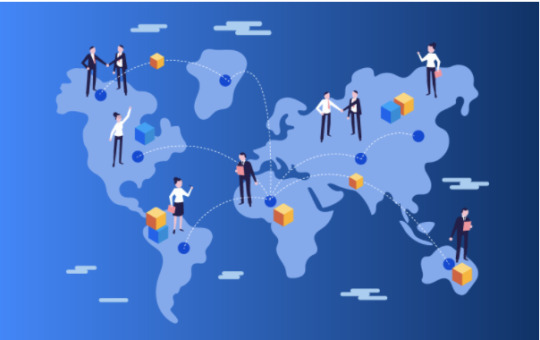
So now that we have discussed what ethicality really is and how it can be seen throughout a business’s core processes and culture, let’s talk about ethical challenges in global business. As businesses expand globally, they must be able to acknowledge the ethical and legal issues in international business. In order to succeed internationally, a company will face many ethical issues such as outsourcing, working standards and conditions, workplace diversity and equal opportunity, child labor, trust and integrity, supervisory oversight, human rights, religion, the political arena, the environment, bribery and corruption (to name a few).
If a business is trading internationally, it must comply with federal and state regulations, environmental laws, and many other restrictions. On top of all of these guidelines, culture can also affect a business’s decisions. As every nation has its own history, traditions, customs, code of ethics, and culture, a firm must be sensitive to these differences in order to operate ethically and successfully. By acting in accordance with these diverse ethical values, a multinational company can win its clients’ support and business.
In the next couple of posts, we will be discussing examples of different businesses and their international operations.
0 notes
Photo

We are almost at the end of our journey... Thank you for your support! We’ll reach our goal together!
In the following posts, we’ll be talking about the ethical challenges a business faces when it expands globally. Hope you all enjoy!
0 notes
Text
Compare & contrast
We would like to bring forward our opinion into comparing and contrasting both previous examples: the Chinese credit scoring system, and the Facebook & Cambridge Analytica scandal.
Similarities:
Both situations reflect the extent to which personal data can be accessed by government’s order or under government surveillance, without taking into account the right of the individual. Problem in ethics at individual level, human right of privacy
Both situations enable the access to private individual information without their full consent or realisation of the ongoing process.
Both underline a national problem in the inexistent repercussions from breach of privacy. The chinese government does not allow opposition to its implemented laws. The US government did not undermine Facebook’s actions, so this can lead to believe it would even support them.
Differences:
Credit rating claims to be based on sincerity. “Sincerity in government affairs is the crux of social credit system construction, the level of sincerity of all sorts of governmental actors plays an important model and guidance role for the construction of sincerity among other social subjects” (Creemers, 2015), whereas our example of influencing elections is based on manipulation, not sincerity.
Facebook’s risks in the participation could have been reflected in a fall of its stock price, or heavier regulations implemented in handling data. In China however, the government cannot face any financial repercussions to implementing such a system. We define the situation in the US as having more links to the financial and competitive sector. As our earlier literature suggested, honesty is a less prevalent ethics standard in the financial sector than any other sector.
Reference: Creemers, R. (2015, April 25). Planning Outline for the Construction of a Social Credit System (2014-2020). Retrieved May 17, 2020, from https://chinacopyrightandmedia.wordpress.com/2014/06/14/planning-outline-for-the-construction-of-a-social-credit-system-2014-2020/
#ethics scandals#role of ethics#data protection#privacy#control#power#manipulation#government#role#sincerity#technology#mass surveillance
0 notes
Text
Ethics & Data: part 2
Illustrated by Vox.com, this graph is a simple representation of what motives triggered the Facebook and Cambridge Analytica scandal.
Timeline of events:
Facebook exposed data of 87 million Facebook users to a researcher who worked at Cambridge Analytica, which worked for the Trump campaign.
Cambridge Analytica built a Facebook app, that was a quiz. It not only collected data from people who took the quiz, it exposed a loophole in Facebook API that allowed it to collect data from the Facebook friends of the quiz takers as well
Cambridge Analytica used the data to influence the US elections and votes for Donald Trump, via social media tailored content to each individual US voters
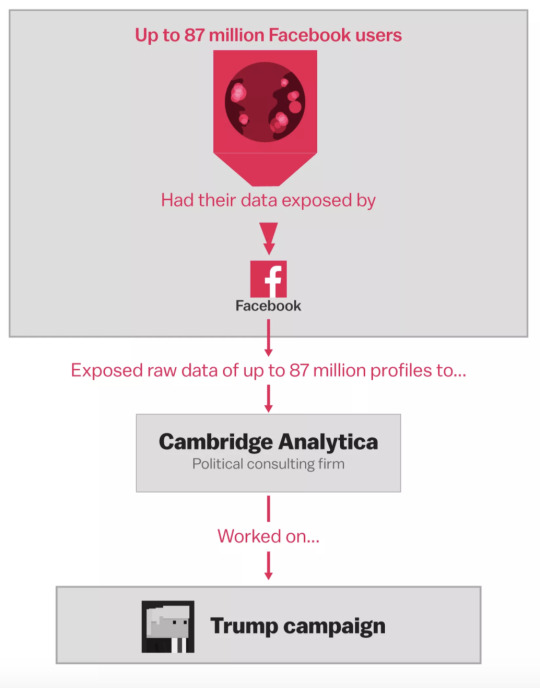
Reference: Chang, A. (2018, March 23). The Facebook and Cambridge Analytica scandal, explained with a simple diagram. Retrieved May 17, 2020, from https://www.vox.com/policy-and-politics/2018/3/23/17151916/facebook-cambridge-analytica-trump-diagram
#data protection#ethics scandals#identity theft#political campaign#personaldata#privacy#socialmedia#manipulation#freedom#leak
0 notes
Text
Ethics & Data: part 1
The social credit score isn’t the result of other people judging you, but a representation of either state or corporate power. And this is certainly not a situation unique to China. Financial start-ups worldwide are developing methods like the Chinese Zhima scoring system in order to sell loans to people without a credit score. Facebook holds a patent on a credit score that takes into account the scores of your friends. This generation, collection and processing pf vast amounts of data about us has never been easier.
We think it is more important to understand data collection than to fight against it. Better understanding motives and roots behind this data collection system actually allows us to discover 1) who is collecting what data about us 2) what they can do with it and 3) why they are doing it.

Financial institutions use our data to generate revenues, but as we'll see with the Cambridge Analytica recent scandal, there are also political implications...
Reference: Raphael, R., & Xi, L. (2019, January 23). Discipline and Punish: The Birth of China’s Social-Credit System. Retrieved May 17, 2020 from https://www.thenation.com/article/archive/china-social-credit-system/
#role of ethics#personaldata#protection#government#control#individual#national system#surveillance#power#centralisation#authority
0 notes
Quote
The main purpose of the social credit rating serves as government promotion, and joint construction with society. Focus on giving rein to the role of market mechanisms, coordinate and optimize resource allocation, encourage and muster social forces, broaden participation, move forward together, shape joint forces for social credit system construction.
From the Government Planning Outline (Creemers, 2015)
Introducing the Chinese social credit system - to be continued...
Reference: Creemers, R. (2015, April 25). Planning Outline for the Construction of a Social Credit System (2014-2020). Retrieved May 17, 2020 from https://chinacopyrightandmedia.wordpress.com/2014/06/14/planning-outline-for-the-construction-of-a-social-credit-system-2014-2020/
0 notes
Text
Pandemic: lessons from Asia
Differences in European vs Asian societal values can be traced to the degree of individualism inherent in the national culture. In addition to families having a central role, Asia’s collectivistic culture traits include social rules focus on promoting selflessness, centralisation of decision making, doing what’s best for society”. The degree of authority centralisation might be seen as excessive, abusing of authority and power, in some cases as compared to our European standards. But in situations like COVID-19, it has shown significant benefits
Our opinion: lessons from Asia
Individual discipline of adopting necessary measures (wearing the mask)
Proactive communication to get population on board
Aggressive testing and strict quarantine rules
Traumatic memories of other epidemics: meaning government were better prepared to react fast, and populations much more willing to cooperate
Managing sense of panic and confusion

We believe these social and cultural norms emphasising self discipline and strict obedience are some reasons why countries in Asia have so far managed to limit the spread of the virus and the number of infections. According to the WHO’s most recent statistics, South-East Asia is now the second to last continent with ratio to number of cases. We believe this is spectacular progress, considering that the epidemic started in China. World Health organisation has praised China for “perhaps the most ambitious, agile and aggressive disease containment effort in history”
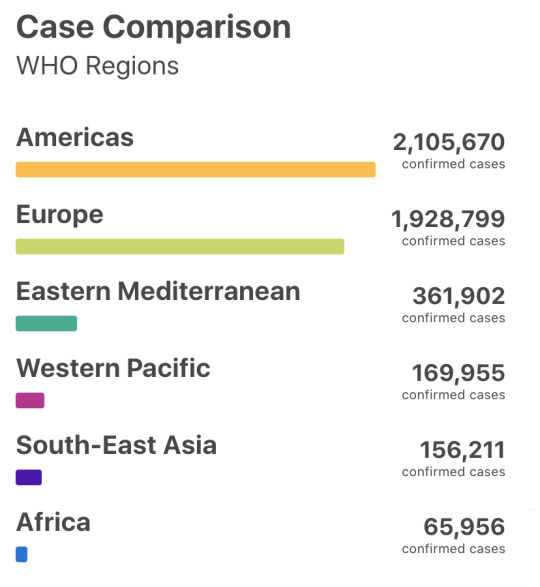
Reference: Cherry, K. (2020, March 24). Understanding Collectivist Cultures. Retrieved May 16, 2020, from https://www.verywellmind.com/what-are-collectivistic-cultures-2794962
White, E. (2020, March). Subscribe to read | Financial Times. Retrieved May 16, 2020, from https://www.ft.com/content/e015e096-6532-11ea-a6cd-df28cc3c6a68
#centralization#decision making#national culture#collectivism#asia#containment#pandemic#efficacity#societal values#governance#power
0 notes
Text
Gender roles - Confucianism’s relevance today
We know confucianism empahizes on diverse relationships (ruler and subject, father and son, husband and wife) based on respect, harmony and peace. However, lots of people are asking themselves if Confucianism is still relevant in today’s world...
For those who are not familiar with Confucianism, read this short definition:
Confucianism [ kuh n-fyoo-shuh-niz-uh m ]: the system of ethics, education, and statesmanship taught by Confucius and his disciples, stressing love for humanity, ancestor worship, reverence for parents, and harmony in thought and conduct.
Our opinion:
YES, it is.
This video shows us that when people do not adhere to Confucianism’s values, violence emerges. Different relationships are visible in this video: husband and wife, friend and friend, father and son. In all the situations disrepect is present and damages the existing relationship between people. That’s why Confucianism is still relevant today and that’s why people should adhere to Confucianism. It, of course, needs to be modernized to fit to today’s world and people. For example, women are not equal to men in Confucianism. It is an old theory and the world changed a lot since Confucianism’ creation. Women fought for having the same rights and therefore, equality between women and men must be considered. However, the core virtues (Ren, Li, Yi, Chi, and Xin) are still relevant and should be practised by every people in order to avoid violence.
youtube
Reference:
Dictionary.com. (n.d.). Confucianism. Retrieved June 05, 2020, from https://www.dictionary.com/browse/confucianism
Wu, J. & Wokutch, R.E. (2015), “Confucianism and stakeholder theory”. https://doi.org/10.1111/basr.12046
Bond University. (2016, June 5). Confucianism and Domestic Violence. Retrieved May 20, 2020, from The Confucian Weekly Bulletin website: https://confucianweeklybulletin.wordpress.com/2016/06/05/confucianism-and-domestic-violence/
#national culture#confucianism#family#roles#gender#opinion#womenempowerment#tradition#generations#respect#social values#philosophy
0 notes
Photo

Hello guys! We are already at the halfway point of our journey about ethics. We hope you enjoy taking part in our adventure. Don’t hesitate to react to our posts!
It is now time to look at another interesting topic: national culture. Let’s go!
0 notes